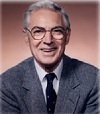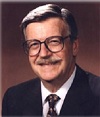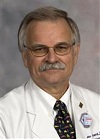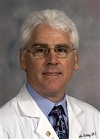Education
- Department of Neurosurgery
- Contact Neurosurgery
-
News
- Department of Neurosurgery News
- 2025
- 2024
- 2023
- 2022
-
2021
- Patient Story: Bradley Hamblin - Brain Tumor
- Patient Story: James Irwin - Childhood Cancer
- Patient Story: Judy Herrington - Stroke
- Patient Story: Kathleen Keeton - Spine
- Patient Story: Lee Roy Nail - Trigeminal Neuralgia
- Patient Story: Patrick Kerns - Aneurysm
- Patient Story: Paul Miller - Pituitary Tumor
- Patient Story: Tamika Larkin-Stowers - Epilepsy
- A Year Later
- New Technology for Minimally Invasive Procedures
- Minimally invasive procedure repairs brain aneurysms at high risk of bursting
- Patient Stories
- About the Department
- Education
- Research
- Support the Department of Neurosurgery
About Neurosurgery
 |  |  |  |
When the University of Mississippi Medical Center opened its doors in 1955, Dr. Orlando J. Andy headed the Department of Neurosurgery. In 1958, a residency in clinical neurosurgery was developed with the assistance of Dr. James Brown, associate dean for student programs, and Dr. Charles Neil, clinical professor of neurosurgery. With the assistance of Dr. Ralph McChin, experimental psychologist, a research laboratory, was developed in 1959.
Several years later, a clinical laboratory of diagnostic psychology and electroencephalography was developed with the assistance of Dr. Marion Jurko, electroencephalographer and clinical psychologist. During Dr. Andy's tenure from 1955-79, the patients from Mississippi became the backbone of the neurosurgery training program at UMMC and the G.V. "Sonny" Montgomery Veterans Affairs Medical Centers.
In 1961, a program was developed in general neurosurgery that met board requirements. Subsequently, neurosurgeons interested in specialized fields, representing advanced treatments and research, were added to the faculty. Clinical research done at this time involved behavioral and electrographic studies performed on all patients who had the following procedures: thalamotomy for motor, pain and behavior disorders; amygdalotomy for intractable complex partial seizures; thalamic stimulation electrode implant for pain and motor disorders; and cortical recording and mapping in brain tumor and seizure problems.
The laboratory animal research was a postdoctoral training program in the anatomy and physiology of behavior, which was developed in conjunction with the University of Mississippi's Department of Psychology in Oxford. Research centered on the anatomy and electrophysiology of behavior in rats, cats and monkeys. Behavioral changes in conditioned and non-conditioned freely moving subjects were studied in relation to electrical stimulation and after-discharges of limbic and cortical structures. Other studies related the limbic discharge to brainstem stimulation effects, propagation patterns and blood pressure changes. Until his retirement in 1997, Dr. Dudley Peeler directed an extensive research effort focusing on memory and emotion-related behaviors of recombinant inbred mouse strains.
In 1979, Dr. Robert R. Smith was appointed chairman of the department after serving several years on the faculty. Dr. Smith was one of the premiere neurovascular surgeons in the country and his clinical interest varied from the management of intracranial aneurysmal and subarachnoid hemorrhage to ischemic stroke to how it might be treated surgically. Dr. Smith's laboratory research included the pathophysiology and pathogenesis of cerebral vasospasm. He chaired the department until 1994.
In 1995, Dr. Andrew D. Parent was appointed chairman of the Department of Neurosurgery. Dr. Parent has served as a neurosurgery faculty member at UMMC since 1978. Dr. Parent is a widely respected pediatric neurosurgeon in the country and is one of only two pediatric neurosurgeons in the state of Mississippi.
Under Dr. Parent's leadership, the following services and programs have been established in the Department of Neurosurgery: Stereotactic (pain, motor, seizure, behavior), pediatric, vascular, pituitary, skull base, epilepsy, brain tumor and spine. Research in the neurosurgery laboratory is presently conducted by the Neurosurgery faculty and, under their direction, neurosurgery residents and postdoctoral research fellows conduct research in immunotherapy of brain tumors, stroke and cerebrovascular disease, neurobehavioral genetics, and motor and behavioral neurophysiology.
In 2008, Dr. Haynes L. Harkey III was appointed chairman of the Department of Neurosurgery. Dr. Harkey has been a faculty member of the department since 1990. He has for a number of years served as the residency director. Dr. Harkey specializes in the treatment of spinal disorders and spinal trauma.
The Department of Neurosurgery is committed to providing the best neurological care possible and to continue on the cutting edge of medical technological development through research.


